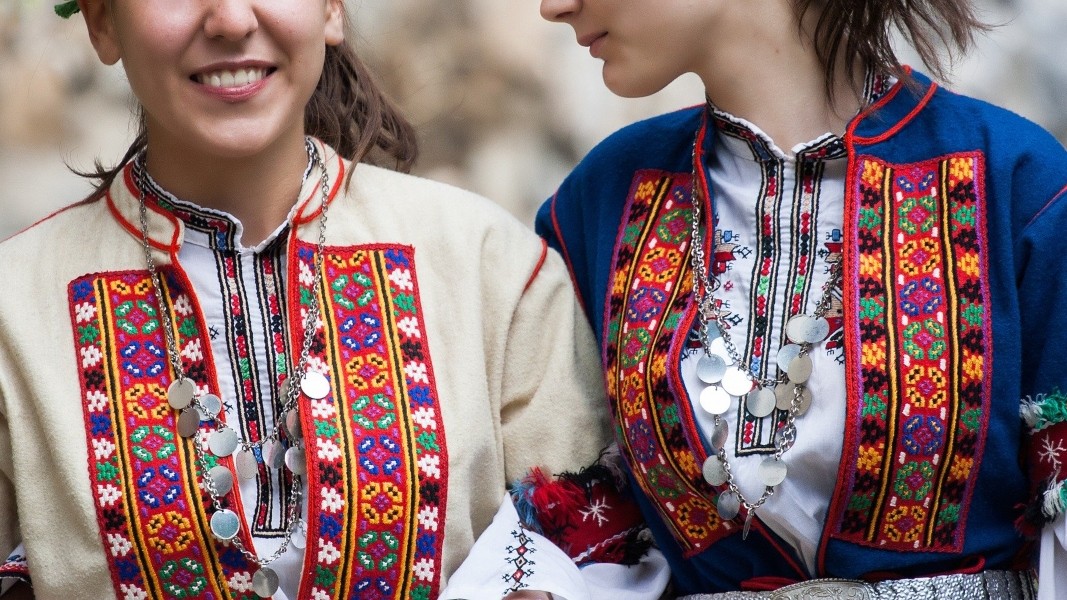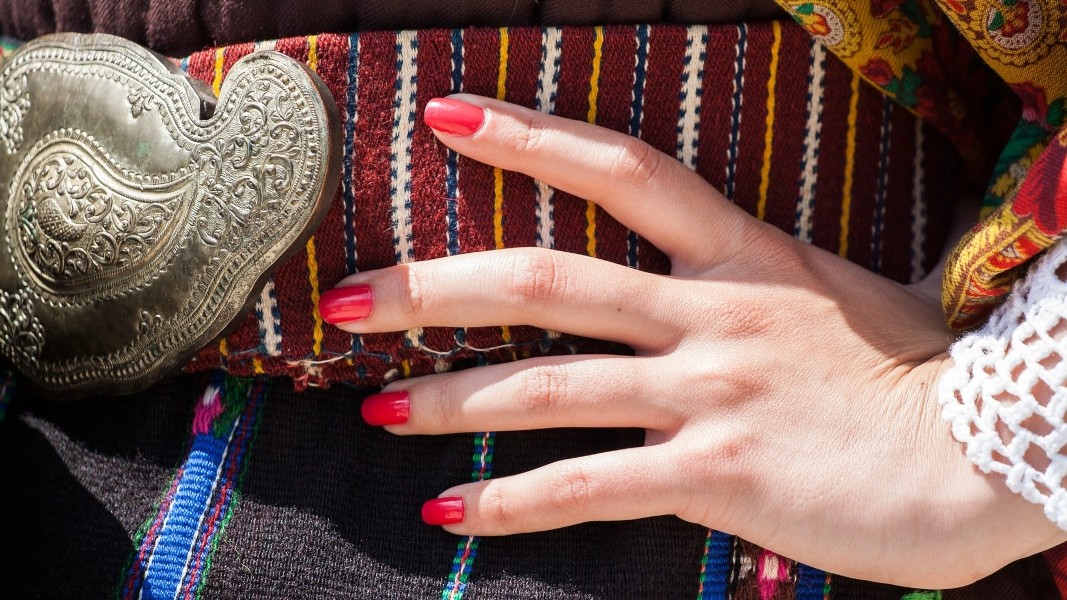On the Feast of Saints Peter and Paul (June 29), called by Bulgarians Petrovden, we also celebrate the Day of Craftsmen. In Bulgarian lands ancient traditions related to handmade jewelry, national costumes, household items and other items close to art, continue to exist.
Embroidery and braiding are the basis of the Bulgarian folk costume. As long as these crafts remain alive, Bulgarian folklore singers will continue to present the beauty of the folk costume at world stages.
Stoyan Marinov from Dobrich has dedicated his whole life to the traditional Bulgarian costume - the one created by the hands of the master craftsman and bearing the imprint of his style and worldview. He has made the costumes of small amateur groups for authentic folklore, as well as those of world-famous folk singers, including Yanka Rupkina and Galina Durmushliyska. "I have also worked with Bulgarian folk bands in England, Germany, the Netherlands, and my costumes are also owned by people from various continents - all the way to the northern Canadian provinces and the Kamchatka Peninsula," the master craftsman says.
"For me work is a pleasure," he says. “I am self-taught and I started when I was just 15 years old. Making a folk costume requires a lot of skill, but the main thing is making decorations using beads. I put an emphasis on the head ornaments, which are from different areas of Bulgaria. No Bulgarian folk costume could be made without jewelry and decoration. After that the other important elements come - the cut, weaving, embroidery, knitting, the traditional Bulgarian lace.”

The craftsman adds that he grew up in times when there were people who could tell him and show him the intricacies of the craft. "And most of all, they could convey the most important thing - the aesthetic criteria and style used in making of the costume," he points out. With a little sadness Stoyan Marinov says that today there is no one to learn from and he can only rely on himself.
"Folk art is a complex set of skills and aesthetic criteria - a perfect system of traditions, beliefs, views and rituals, he says. “And when a person has mastered it, they could upgrade on it. In the past, if someone made an ugly copy of a beautiful costume, the whole society would laugh at them but if a craftsman managed to achieve a positive result, others followed suit. I have my aesthetic criteria, but I also comply with the stage, because it looks like a magic box viewed from a distance. And you have to think about lighting, movement, the dance and about how everything will look like.”
According to Stoyan Marinov, unnecessary authorship should not be introduced into the craft. But frugality and haste also lead to degradation of art, he adds.
"I am always ready to work and I am happy to welcome any order,” Stoyan Marinov says. “I never repeat something I have already done. I make the details in a different way, but I always stay true to the Bulgarian tradition. In order for a thousand-year-old tree to grow, its roots should not be cut. Unfortunately, this has not been the case lately, and if we wait for people's approval, we may not always receive it. The most important thing is to give the maximum of yourself and to know that there is someone in the world who will appreciate it."

English: Alexander Markov
Photos: PixabayEveryone in Bulgaria has heard scary stories about dangerous vampires since childhood. Today, these dark spirits are familiar to us mainly from the way they are recreated by the authors of novels and especially popular titles in the cinema. However, we..
A festive concert of the Otets Paissii Performing Folk Ensemble will be held in Nessebar today, as the ensemble celebrates 70 years since its establishment. The formation is the oldest Bulgarian folklore ensemble in the USA at the..
Ritual food is an integral part of the Bulgarian ritual system. In the calendar of a Bulgarian village more than a century ago, food with meat was rarely consumed. People usually ate meat 4-5 times a year - on Christmas, St. George’s..

+359 2 9336 661
